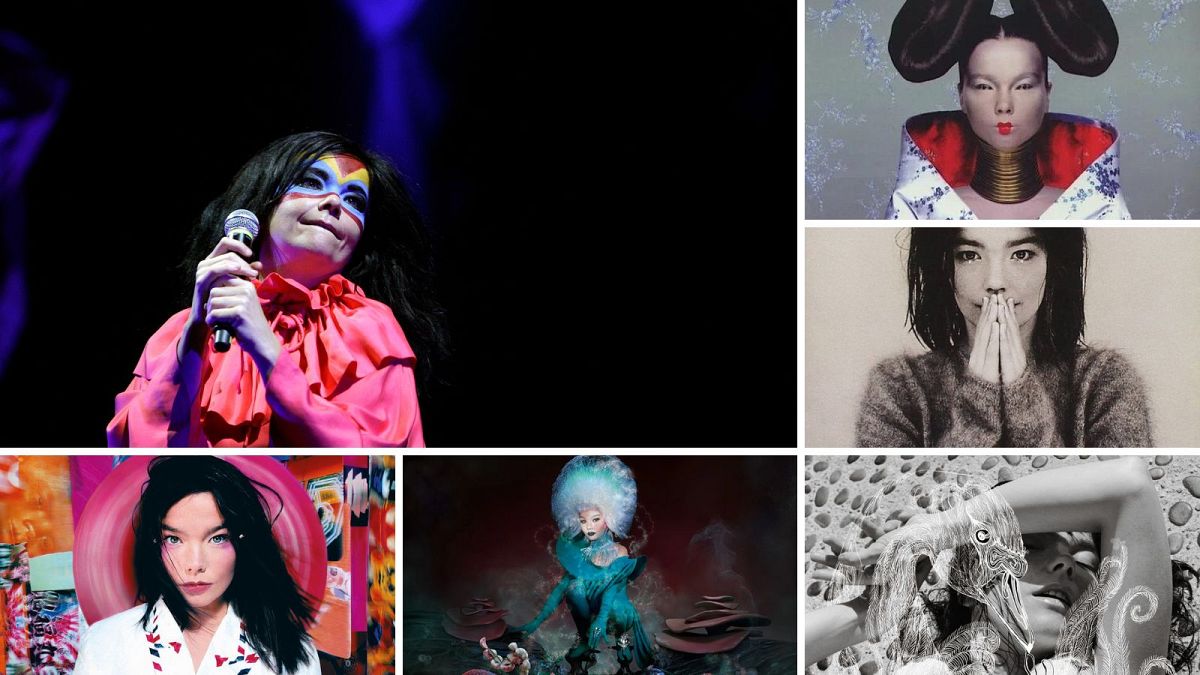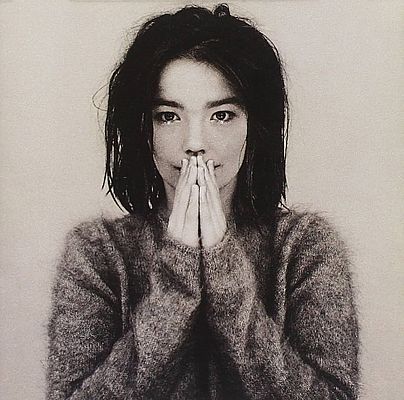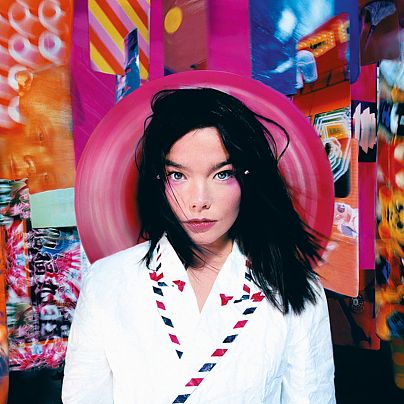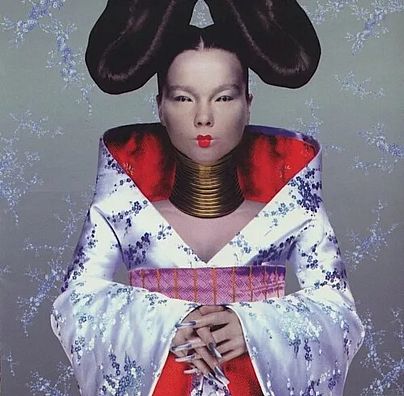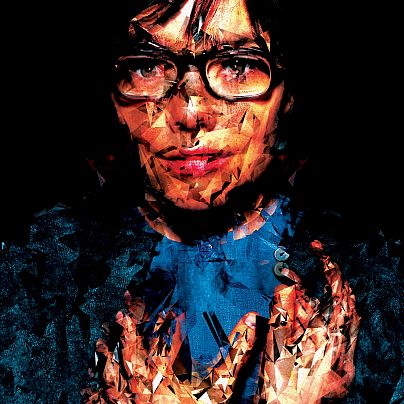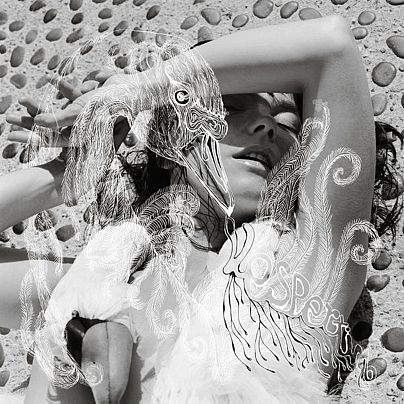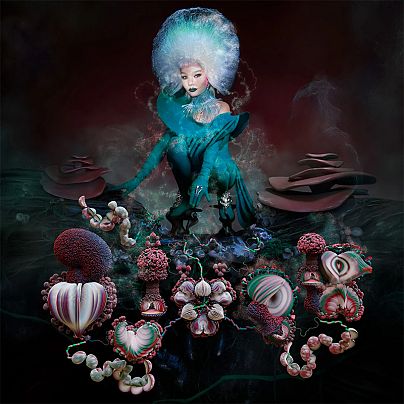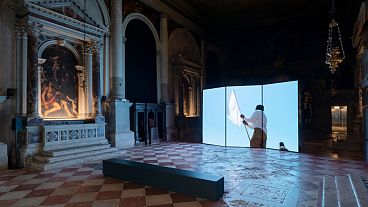On this day: Happy Birthday to Björk, who turns 58 today.
The Icelandic singer and musical genius - whose name means ‘birch-tree’ (and properly pronounced ‘Beeyerk’) - burst onto the international music scene with a succession of catchy and avant-garde albums in the 90s.
Since then, Björk Guðmundsdóttir has ventured further and deeper into weird and wonderful sonic territories, which continues to makes her completely unique.
To celebrate her birthday, here are the albums you need to listen to, or should own by the Icelandic songstress. A sort of starter pack, if you will, to broaden the horizons of those who haven’t yet had the pleasure.
Start with: 'Debut' (1993)
What better place to start than at the beginning? Though it was her first album, the Icelandic singer-songwriter was far from a novice on the music scene. The former Sugarcubes member was introduced to the world as a solo artist with 'Debut', which instantly marked her out as a force of nature to be reckoned with. Björk ambitiously blended a wide variety of sounds on this album, weaving in strings, club beats, world music and ambient house, a delirious pop mix that feel just as innovative today as it did in 1993. Yep, it turns 30 this year, and tracks like ‘Human Behaviour’, ‘Venus as a Boy’, ‘Big Time Sensuality’ and ‘Violently Happy’ (as well as the stunning ‘Play Dead’ on the re-release edition) still feel as fresh. ‘Debut’ was a a start-as-you-mean-to-go-on statement of intent, a fully formed rehearsal for greater things to come.
Continue with: 'Post' (1995)
'Debut' established Björk as a singular artist, one unafraid of confounding expectations. Her second album, 'Post', was a visionary follow-up, bolder and more unconventional than her first. Listening to it is constantly surprising, with more jazz, pop and electronic fusion that fully established her at the time as the one to beat when it came to alt-pop. There’s the brilliant ‘Army of Me’; the hypnotic ‘Hyperballad’; ‘Enjoy’, her love letter to London (where she’d just moved); the cinematic 'Isobel'; and of course, the rapturous big-band cover 'It’s Oh So Quiet'. It was a catchy, eccentric, and futuristic expansion of her influences, and with her growing palette, she was going from strength to strength. It may have been her commercial peak, but no one could have predicted quite how stunning the next record would be...
Celebrate her masterpiece: 'Homogenic' (1997)
If her first two albums established Björk as the queen bee of alt-pop, her third release would crown her the trailblazing vanguard of all things experimental. The tunes were still there, but her “emotional landscapes” graduated to entrancing, with full-bodied orchestral work complementing the trip-hop influence, as well as her focus on her homeland for this album. From the moody ‘Hunter’ to the unbeatable triple tap of 'Jóga', 'Unravel' and 'Bachelorette' (“I’m a fountain of blood in the shape of a girl” maybe one of the greatest lines she’s ever written), from very early on, 'Homogenic' announces itself as an uncompromising masterpiece. By the time you get to closer ‘All Is Full Of Love’, you’re convinced it is. 26 years after its release, it still feels and sounds incredibly innovative, and as monumental as it did in 1997.
Don’t forget: 'Selmasongs' (2000)
'Selmasongs: Music from the Motion Picture Soundtrack Dancer in the Dark' was the first soundtrack album by Björk. In the film by Lars von Trier, she starred as Selma, a Czech immigrant in the US and ended up winning the Best Actress award at the Cannes Film Festival. The soundtrack, which runs for a taut 32 minutes, features classical arrangements, as well as melodies and beats composed of sounds from mundane objects, such as factory machines and trains. It’s a stunning album, which gave us the centrepiece gem 'I've Seen It All', with Radiohead’s Thom Yorke duetting with Björk. It’s an achingly romantic track that was rightly nominated for an Oscar for Best Original Song. 'Selmasongs' is an often overlooked offering in Björk’s discography, and it deserves to be experienced. Not only that, it set the stage for her more intimate and stunning fourth album, which would come out the following year...
Celebrate her second masterpiece: 'Vespertine' (2001)
How do you follow an album like 'Homogenic'? Simple: create a universe. More precisely, an intimate and domestic universe away from some of the brash sonority of previous albums. Focusing on minimal electronic music and enlisting experimental duo Matmos, Björk created "microbeats" from various everyday sounds – walking through the snow, the shuffling of cards, ice cracking. The result is a uniquely transportive album. By embracing the themes of love and sex, and a sense of bracing vulnerability, Björk orchestrated a lush and affective collection of songs that work in perfect unison. ‘Hidden Place’, ‘It’s Not Up To You’ and ‘Pagan Poetry’ are standouts, and show that if her first three albums showcased bombast and effervescence, the committedly atmospheric 'Vespertine' was about breaking internal boundaries and sounding like cosily spooning your partner in a warm chalet while the mother of all snowstorms rages outside. It’s majestic.
For the truly adventurous: 'Fossora' (2022)
Since 2011 and the release of 'Biophilia', Björk has ventured into what some would describe as tantalizingly impenetrable, heady spheres. Others would less charitably call the art-fuckery of the last decade as hard bloody work. And it often is. There was the wrenching breakup album 'Vulnicura' (2015), the sunnier – but very long - 'Utopia' (2017), and her most recent album 'Fossora'. It’s all so committed in conceptuality that fans of the early years have found themselves a tad removed from the music, missing more standard songwriting structures. Still, that doesn’t mean there aren’t rewards, and 'Fossora' is a record well worth investigating. Centred around soil, fungi and roots – a return to earth after the heavenly explorations of 'Utopia' - it’s a primal sounding album, focusing on themes of motherhood and what the concept of home means. It’s a destabilizing listen, with choruses suddenly replaced by heavy clarinets and techno beats. Puzzling as it often is though, Björk showed once again that she dares to venture where few would. And the uniqueness of her sound and vision remains alive and well.
